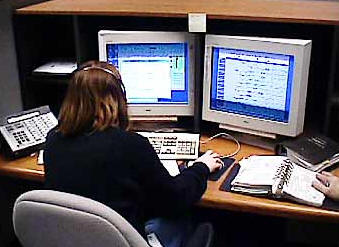
| NEWSROOM |
|
|
 |
|
|
|
|
|
|||
|
By |
||||
 |
February 2, 2010 – The 21st Annual Schedulers & Dispatchers (S&D) Conference saw the third highest attendance in the event’s history with 2,282 Attendees. “We are pleased to see such a strong attendance at this year’s Conference, which demonstrates the event’s continuing value to our industry,” said NBAA President and CEO Ed Bolen. The NBAA Schedulers & Dispatchers Conference is an annual educational event that provides timely and valuable information on topics of interest to those responsible for coordinating the use of business aircraft.
The event included
hundreds of exhibits from aviation products and services providers, and
was held from Wednesday, January 27, through Friday, January, 29, 2010
at the |
|||
|
Bolen welcomed Jon Bonnell and Robin Eissler, who provided first-hand
accounts of the business aviation community’s work to support relief
efforts for
Jo Damato, NBAA director of operations and educational development, said
that participants in this year’s event have given the show high marks.
“We have heard from exhibitors and attendees that this event continues
to be a can’t-miss event for them,” Damato said. “NBAA will continue
working to enhance the value of future Schedulers and Dispatchers
Conferences.”
A flight dispatcher is a person responsible for planning and monitoring
the progress of an aircraft journey. In airline operations, depending on
the type of certification the airline has, and depending on where the
airline is based, both the pilot in command and the dispatcher are
legally responsible for the safety of a flight. A dispatcher may have
the authority to delay, divert or cancel a flight at any time, and a
flight might not be able to be released without the signature of both
the pilot in command and the dispatcher - again depending on the
jurisdiction. |
||||
|
A dispatcher
typically must be licensed by the aviation authority of a country. In
order to obtain the license, the candidate must demonstrate extensive
knowledge in meteorology and aviation, to a level that is comparable to
that of an airline transport pilot license.
In the
Licensed flight
dispatchers have to demonstrate extensive aviation knowledge equal to
that of Airline Transport Pilot License (ATPL) holders. The FAA ATPL
written exam and the FAA Dispatcher written exam are identical, he/she
is asked questions concerning safety of flight.
For airlines
operating under 14 CFR PART 135, the dispatching duties and
responsibilities are actually designated to flight followers. The main
difference between a flight dispatcher and a flight follower is that
latter does not share legal responsibility for the operation of a
flight. Also, followers are not required to attain a flight dispatcher's
license, although they are usually encouraged to do so.
Many countries
issue licenses which are based on ICAO Annex 1 and 6 as well as ICAO DOC
7192 D3, however not all countries have adopted a mandatory license and
joint responsibility/flight watch operational control systems. The FAA
has mandated the use of flight dispatchers/joint responsibility/flight
watch since the "Civil Aeronautic Act" was passed in 1938.
Due to several
more accidents the FAA is lobbying for tighter regulations from the
ICAO. JAR OPS 1 did not mandate the use of an operational control system
with flight dispatchers/joint responsibility/flight watch. The
pan-European agency EASA has not yet issued a requirement mandating the
use of such an operational control system either. It is expected that
EASA OPS and EASA FCL will be published in 2006 which will outline
EASA's position on the issue as well as any requirements imposed on
European airline operators.
Even if not
required by regulation, such as in Title 14 CFR Part 135 operations or
in the case of private flying, use of a Preflight Planning Dispatch
Checklist could significantly enhance flying safety by helping pilots
obtain all critical information before flight when their workload can be
managed. Once in the aircraft, the gathering of such information might
distact a pilot from other more important priorities when time is
critical, or the inability to gather the appropriate information in
flight might lead to poor decision making.
The next
Schedulers & Dispatchers Conference is expected to be held in early
February 2011 in
Founded in 1947
and based in |
| ©AvStop
Online Magazine
Contact
Us
Return To News
|
|